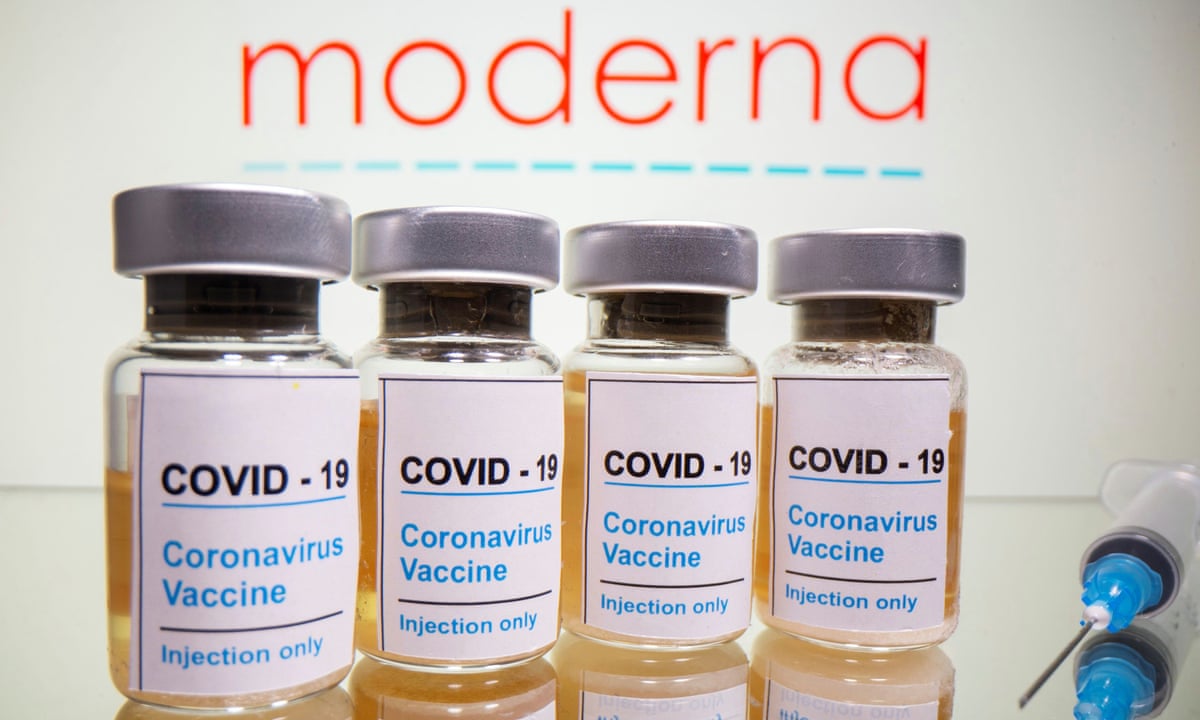RIO DE JANEIRO, BRAZIL – The purpose of any vaccine is to mimic an infection without causing harm, in order for the body to generate immunity against a virus. Currently, data are being disclosed that suggest that the Moderna vaccine produces higher immunity than the novel coronavirus infection itself.
A group of 34 subjects of all ages who were administered the two doses of the Moderna vaccine continues presenting high levels of antibodies up to four months after the first dose. Antibodies are tiny proteins capable of binding to the virus and preventing it from causing diseases.
The types of antibodies in which this work is focused are the most effective in neutralizing SARS-CoV-2 because they bind to the S-protein in the form of stems that protrude from around the virus and without which it is unable to bind to human cells to sequester them and produce millions of copies of itself.

“This is very positive news”, explains Alicia Widge, researcher of the United States National Institute of Health (NIH), which developed the vaccine with Moderna. “All subjects presented high levels of antibodies against SARS-CoV-2 three months after the second dose of the vaccine [which is administered 28 days after the first, which means four months of immunity after the first dose]. This suggests that the vaccine will provide long-lasting immunity,” said the researcher, the leading author of the study published in The New England Journal of Medicine.
The most encouraging fact is that four months after the first shot, all those immunized -including those over 71 years of age- had higher levels of antibodies than people who had been infected with SARS-CoV-2.
The Moderna vaccine is one of the most advanced, and proved to be 94% efficacious in a trial with over 30,000 subjects coordinated by the NIH. Its efficacy against severe Covid-19 is 100%, according to the latest data provided by the company. The vaccine is now in its third and final trial phase and no serious adverse effect has been detected. Its approval in the European Union is scheduled for January 12th.
For now, there are no comparable data on the duration of immunity produced by the other more advanced vaccine, that of BioNTech/Pfizer, with 95% efficacy. Both BioNTech and Moderna use the same technical base: messenger RNA. At the moment there is no vaccine of this type approved based on this molecule, but scientists believe it can revolutionize biomedicine, because it enables the development of vaccines against viruses and even against tumors very rapidly.
Doctor Uğur Sahin, executive director of the German BioNTech, explains that they hope to have this data soon. “We have seen levels of antibodies similar to those that Moderna shows, but we have not yet published the data. We hope to be able to do this by the end of next week,” he said. “We know that our vaccine produces memory cells, but also that the levels of antibodies will decrease over time. That means a third booster dose may be required one or two years later,” he adds.
The latest Oxford and Astrazeneca University vaccine data are based on 560 volunteers and show that the immunized subjects have high levels of neutralizing antibodies 28 days after the second dose.
In this case, it is a vaccine based on a DNA genetic message that penetrates the cells within a deactivated chimpanzee virus. This is also a technology that had not been approved until now. The efficacy of this vaccine is between 62% and 90%, but the data reliability is less robust than that of the other two vaccines.
“This is very good news,” says África González, immunologist at Vigo University. “One problem is that it is not yet known what level of antibodies a person needs to know if they are protected against SARS-CoV-2 infection. However, given the few re-infections observed in the world, and that the level of immunity achieved after the first exposure has been sufficient, the data show that those vaccinated would be more protected than those who had the natural infection,” he points out.
“The most striking finding is that the neutralization capacity in these patients who were administered the two vaccine doses in four months is higher in all age groups than in 41 people convalescing from Covid-19 at 34 days,” highlights Carmen Cámara, secretary of the Spanish Society of Immunology (SEI). “It’s very positive data that makes us think that antibodies could last much longer,” she emphasizes.
Marcos López, SEI president, points out another crucial issue. “The types of neutralizing antibodies that have been detected in this study are directed against the binding domain to the virus’ S protein receptor. This means that they were produced in germination centers [immunity headquarters located in the ganglia and spleen]. It is important because we know that when this type of antibodies is generated, B and T memory cells are also created,” he observes.
These two types of cells are the elite corps of long-lasting immunity. They are able to remember a virus and produce antibodies against it and destroy infected cells, respectively, after months or years.
The most recent data on immunity produced by people who overcome infection provide good news that can possibly be extrapolated to the vaccine. The antibodies neutralizing the virus are still present at least seven months later, according to one of the major studies on the subject. In November, another study showed that infected people retain strong immunity for at least eight months later, mediated by B and T lymphocytes, which suggests that immunity could last for years.
The NIH team published a study in September showing that volunteers who were administered the Moderna vaccine had lymphocytes one and a half months after the second shot. “We hope to have the follow-up data for the first six months soon”, concludes Widge.
Source: El País

